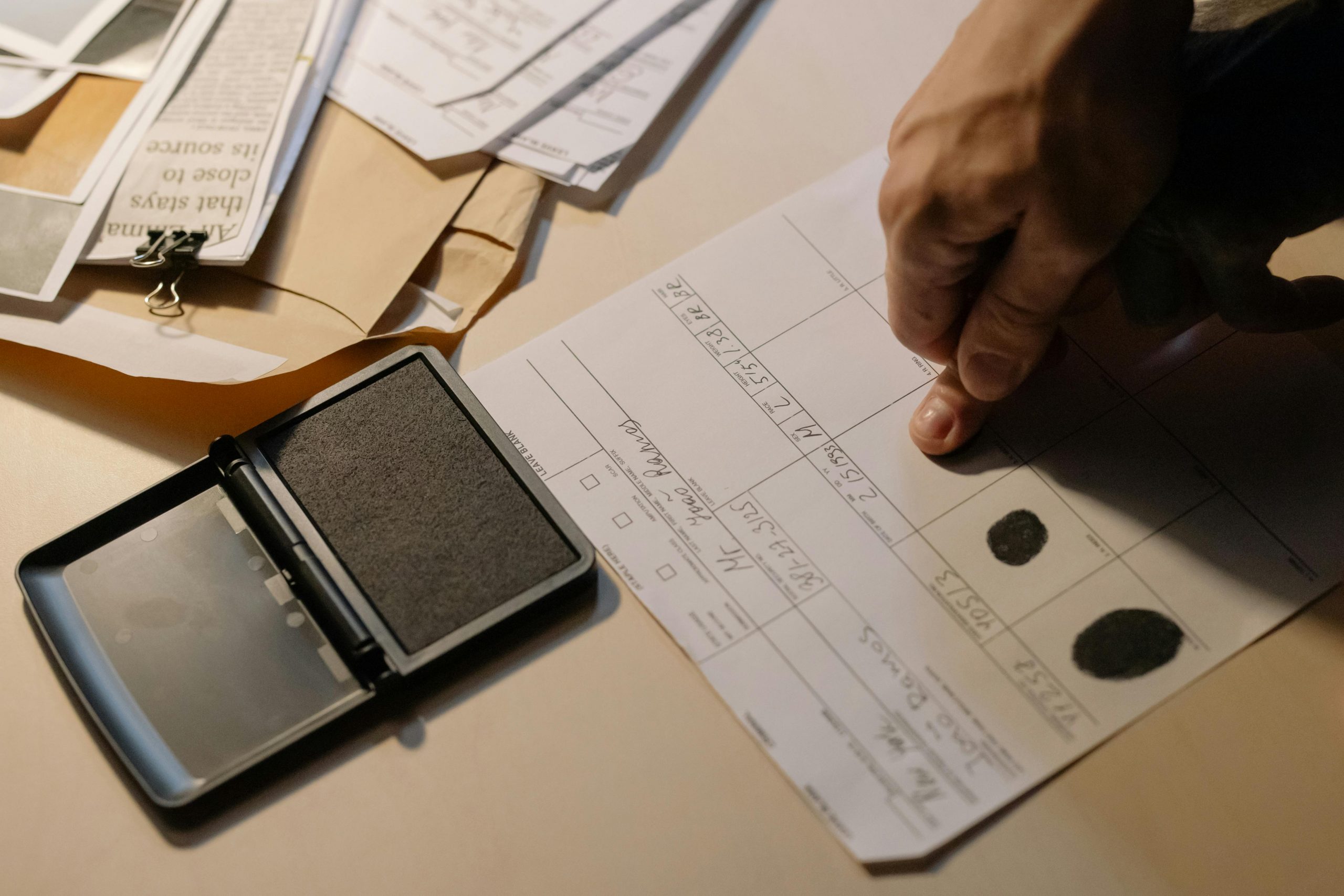
Someone having their finger printed, being pressed down by another hand. Image by cottonbro studio under Pexels license.
A background check can make or break someone’s future. Every day, people are denied jobs, housing, and educational opportunities because of “failing a background check.” These checks are often completed by for-profit private companies, are under- or unregulated, and have a reputation for being inaccurate – but how inaccurate are they?
Researchers Sarah Lageson and Robert Stewart conducted background checks on 101 individuals with criminal records in New Jersey, comparing official state records with a private company’s background check. They then verified the accuracy of the results with the individuals themselves. Of their sample for these background checks, they found that 92% had a “false-negative” error (meaning the person was not flagged as having a criminal conviction, when they in-fact did) and 50% had a “false-positive” error (meaning the person was incorrectly flagged as having a criminal conviction, when but they actually did not).Long story short, errors in background checks subject people and their families to undue financial, social, and emotional harm – all due to a private company’s poor algorithm and negligence. However, with greater privacy protection and regulation of criminal history information in the public sector, the authors argue that reliance on inaccurate private sector background checks may begin to shift.

Comments